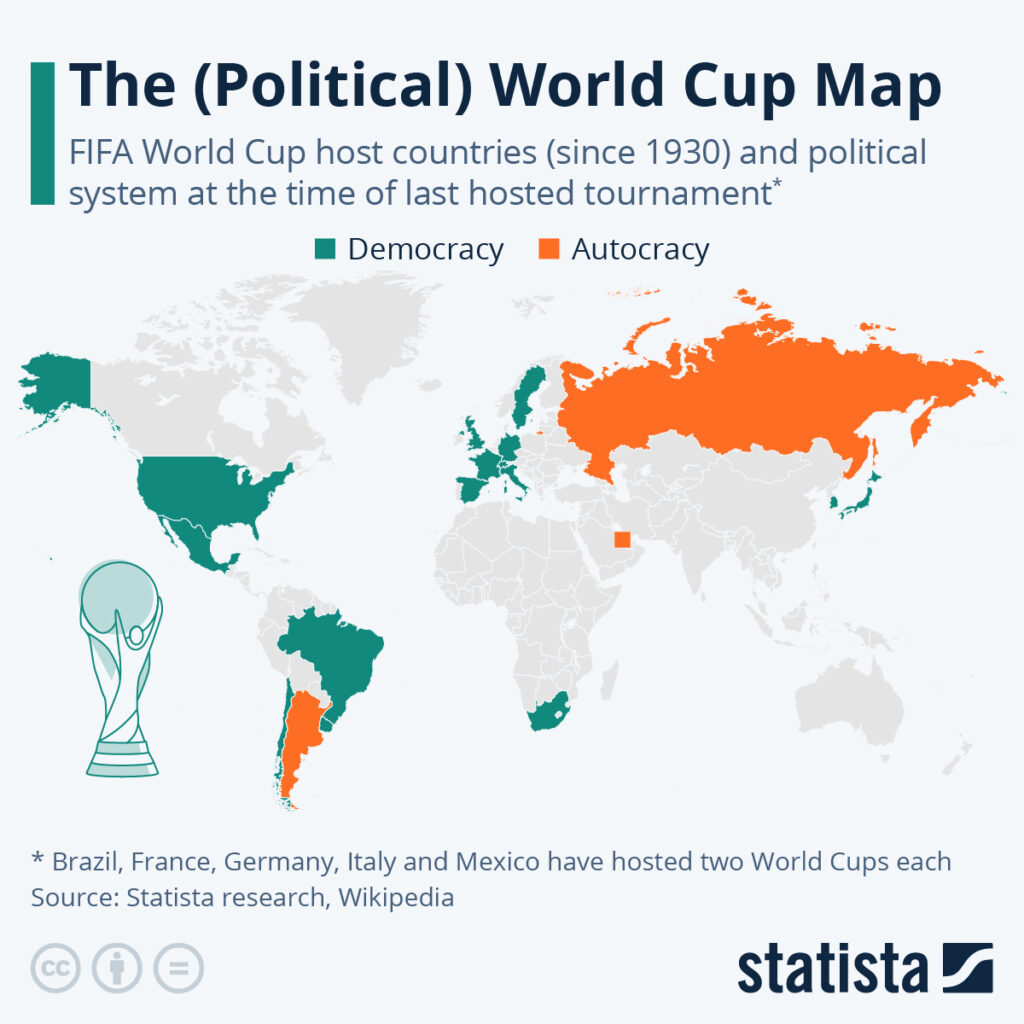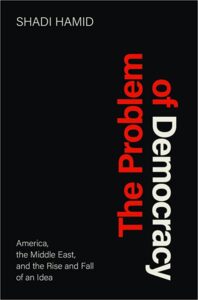During the most politicized World Cup since Argentina in 1978 — it is worth asking. Are democratic nations more likely to qualify for the World Cup? The Athletic asks.
Five teams in the competition have governmental systems which can be considered undemocratic — Saudi Arabia, Qatar, Iran, Morocco and Cameroon — which is 15.6 per cent of the sides. Morocco and Cameroon exhibit elements of both democracy and autocracy. Globally, according to Pew Research, 57 per cent of nations are fully democratic, with 13 per cent fully autocratic, and 30 per cent exhibiting traits of both.
Your country is more likely to win the World Cup if you’re a democracy – even if you’re a small democracy, like Uruguay (above), the data confirms:
By averaging the data, this nation would have a population of 49.7 million and a size of 1,278,735km². Economically, their GDP per capita will be around $29,701, and their position in the global HDI index around 50th. They will speak English, Spanish, French or Arabic, and be a democracy.

The opening week of the Qatar World Cup was overshadowed by political controversy and high-profile gestures of support for human rights. But what in the Gulf has been seen as western hectoring has also turned the football tournament into a rare thing in the Arab world: a source of regional unity, The Financial Times reports:
Arabs have backed gas-rich Qatar’s handling of the World Cup, calling out what they regard as western hypocrisy for criticising the conservative state’s lack of democracy, limits on alcohol and ban on homosexuality — while asking Doha for more natural gas to replace Russian supplies and having failed to scrutinise the previous tournament in Russia as aggressively.
At the FIFA Congress in Qatar at the end of March, the head of the Norwegian association, Lise Klaveness, stated that the world governing body must pay attention to democracy and human rights when awarding World Cups in the future, analyst Jan Busse writes for IPS. It remains to be seen whether this was just an isolated opinion or whether something can actually change within FIFA.
Soccer legend, activist and writer Lilian Thuram joins the Karsh Institute for a screening of World Cup matches followed by a discussion of his experiences as an athlete and activist and the role of sport in democracy. The World Cup and the Role of Sport in Democracy. Dec 2, 2022. 2:00 PM | RSVP.
 What happens when democracy produces “bad” outcomes? Is democracy good because of its outcomes or despite them? This “democratic dilemma” is one of the most persistent, vexing problems for America abroad, particularly in the Middle East — we want democracy in theory but not necessarily in practice, the Center for the Study of Islam and Democracy writes.
What happens when democracy produces “bad” outcomes? Is democracy good because of its outcomes or despite them? This “democratic dilemma” is one of the most persistent, vexing problems for America abroad, particularly in the Middle East — we want democracy in theory but not necessarily in practice, the Center for the Study of Islam and Democracy writes.
Join a discussion of The Problem of Democracy: America, the Middle East, and the Rise and Fall of an Idea by Shadi Hamid.
- Dr. Shadi Hamid, Senior Fellow, Brookings Institution
- Mustafa Akyol, Senior Fellow, Center for Global Liberty and Prosperity, Cato Institute
- Prof. Nader Hashemi, Associate Professor of Middle East and Islamic Politics, Josef Korbel School of International Studies, University of Denver
Moderator: Dr. Radwan A. Masmoudi, President, Center for the Study of Islam and Democracy
Wednesday, November 30, 2022.1:00 pm to 2:15 pm EST. RSVP







